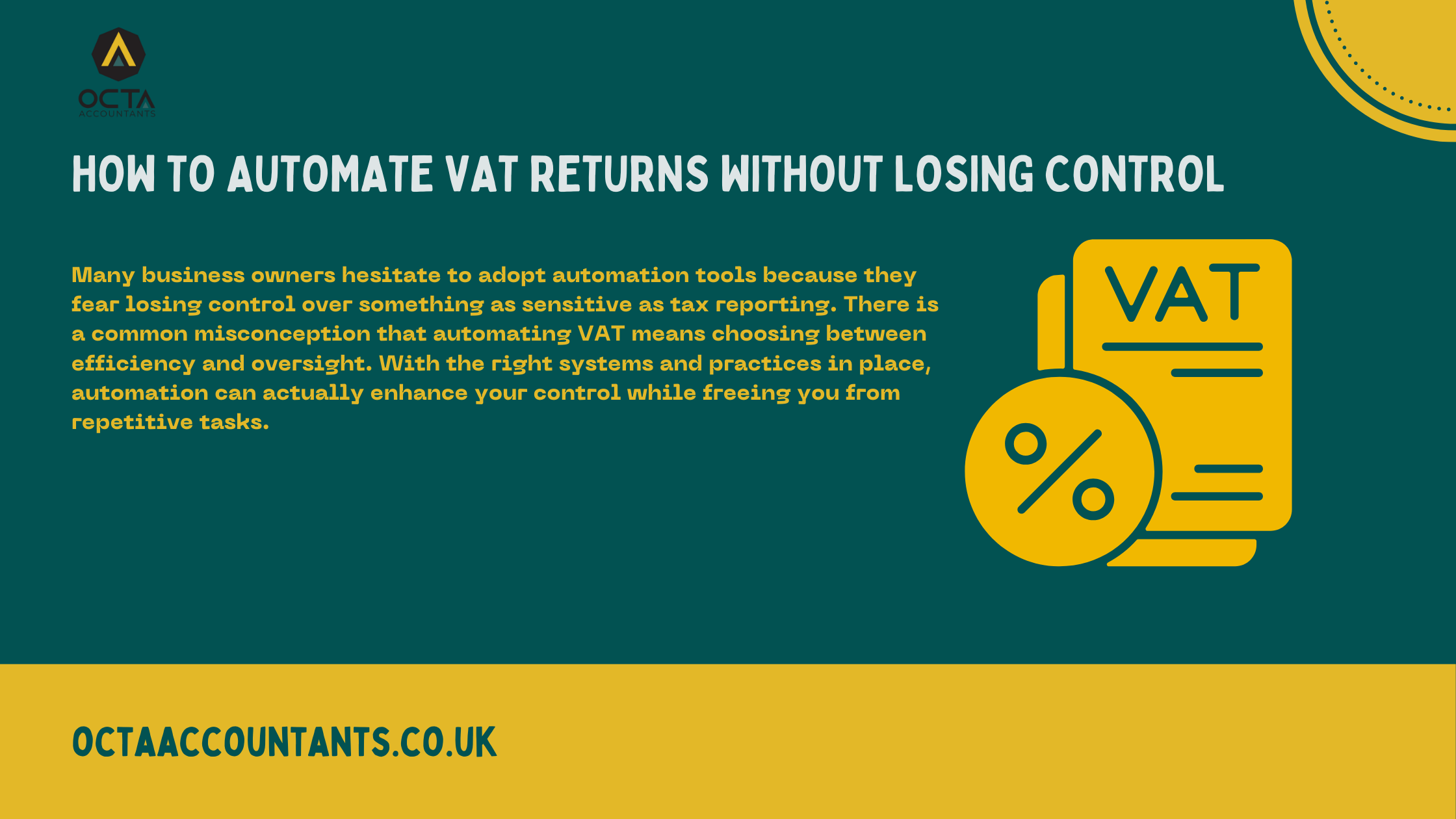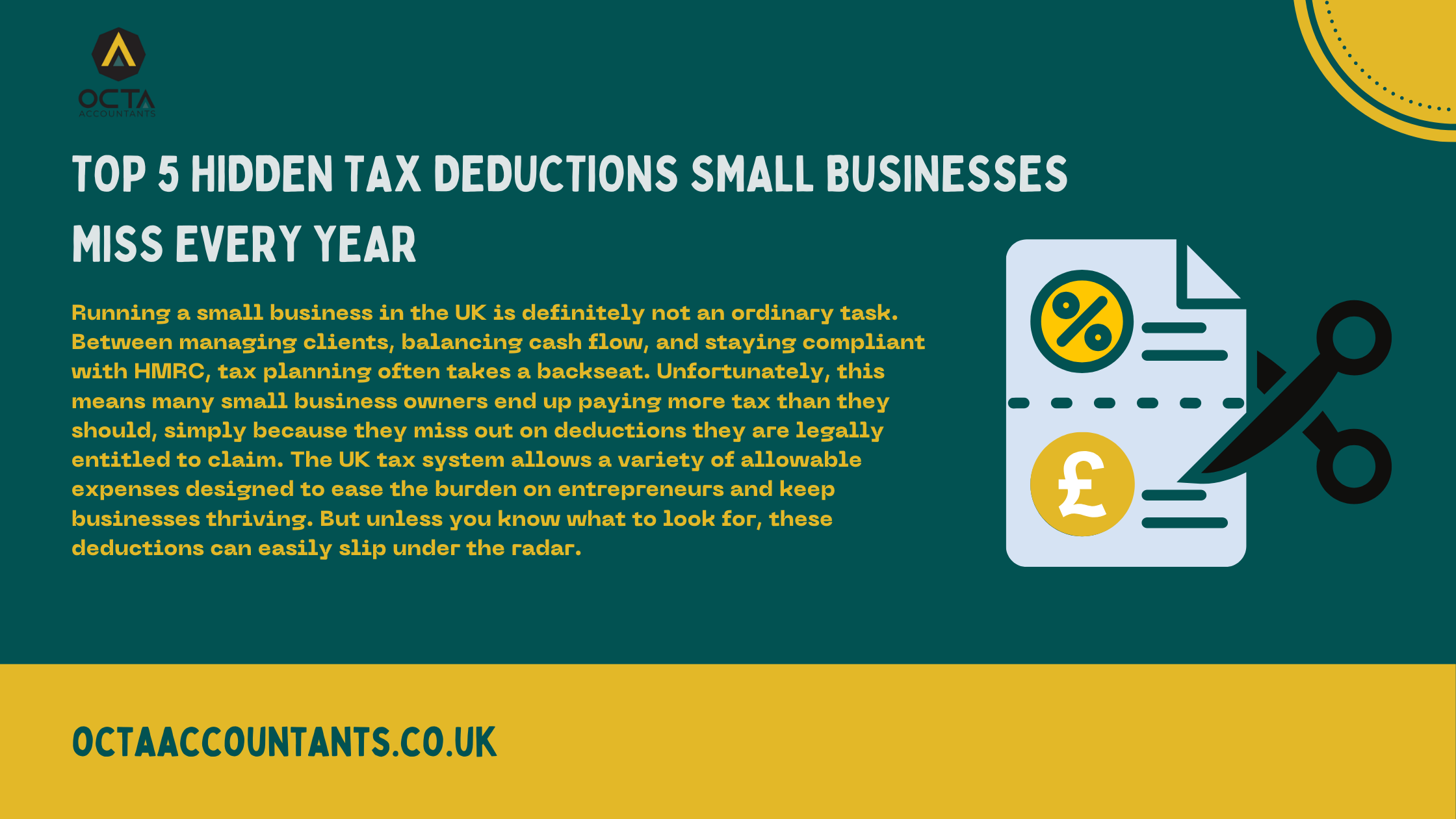
Octa Accountants

6 Min Read

Jun 29, 2024

Inheritance Tax


Inheritance Tax (IHT) is of essence to any form of wealth planning and management. Understanding how it works and different exemptions can aid in the process of making proper decisions and planning the minimization of taxes your beneficiaries will have to pay in the future.
Inheritance tax is a form of tax that is paid by the deceased when he or she dies depending on the property, amount of money, and other assets he or she possessed at the time of his/her death. On the current available information on taxing, it is stated that the normal tax charged for inheritance tax is 40%. However, this rate only applies to the amount exceeding the inheritance tax nil-rate band, or the minimum amount of the deceased’s estate that can be transferred without triggering the inheritance tax.
Nil-rate band is the part of estate that does not at all attract the payment of inheritance tax. For the purpose of the Scottish rate, the split rate, and the small business rate relief, this amount is £325,000 for the tax year 2024/25. Any estate value that surpasses this measure is subjected to the normal charge, which is at 40%.
In the same way, let us assume that an estate is worth £500 000, the amount to be charged a lot inheritance tax will be £175 000 (£500 000 – £325 000). The tax bill, in this case, would be £70,000 (40/100 * £175,000).
Also Read: How to set up a personal tax account?

I) Spouse or Civil Partner Exemption:
There are however a number of exemptions with one of the most prominent being where the asset is transferred to another spouse or civil partner. Any transfer between a husband and wife or between civil partners is free from IHT irrespective of the sum involved. This exemption enables the surviving partner to take over all the assets without paying for any tax.
II) Charity Exemption:
Inheritance tax is payable on the part of the estate not given to qualifying charities or to the government in the form of a specified sum. This not only helps the charitable causes but this also helps in reducing the overall tax on the estate.
III) Annual Gift Exemptions:
These are gifts where the donor makes a gift to the donee, and it does not form part of the donee’s costs and values, provided that the sum of £3,000 or less is given in a tax year. It is called the annual exemption. Also, gifts costing up to £250 in any one financial year are exempt where the donor has not made any other gifts to the donee in the same year.
IV) Gifts Made Before Death:
Normally, the gifts made more than seven years before the passing of the giver are not included in the inheritance taxes. Should the giver deceased within seven years, the gifts may attract taxes but on a scale that is referred to as taper relief.
V) Residence Nil-Rate Band:
Besides, there is an additional £175,000 exclusion for passing the family home to direct heirs (children or grandchildren). This is called the residence nil-rate band and greatly boosts the amount that may be transferred-free of IHT.
Some assets are exempt from IHT entirely or receive special treatment:
i) Pensions: Pension funds are not affected by the law of inheritance tax most of the time.
ii) Life Insurance Policies: It is also relevant that on life insurance if written in trust the proceeds are usually IHT exempt.
iii) Business Assets: BPR is available to reduce business assets for IHT purposes, in some instances to nil.
Inheritance tax can be managed to a certain extent with the help of proper estate planning. Here are a few strategies to consider:Here are a few strategies to consider:
i) Utilise Exemptions and Reliefs: Maximise the opportunities of the exemptions and reliefs that are likely to minimise the taxable value of the estate.
ii) Make Lifetime Gifts: Disposal of assets during one’s lifetime has an effect on eradicating the high value of the estate. It is as simple as the Seven-Year Rule.
iii) Trusts: They can assist in holding and preserving assets for later on, while at the same time decreasing the amount of IHT payable.
iv) Review Your Will: It is wise to update your will from time to time so that it is in agreement with your current desires as well as maximise the applicable options on taxes.
Inheritance tax issues are not so easy to comprehend. Octa Accountants focuses on the methods of optimization of an inheritance tax for every client challenged individually by our professionals. Our team of experienced accountants and financial advisors can assist you in:
- Developing a comprehensive estate plan: We will also discuss with you and develop the best strategy of availing all the exemptions and reliefs within our diagnostic.
- Setting up trusts and other tax-efficient structures: Our specialists will advise you on how to create trusts and other structures in order to preserve one’s money and decrease the tax rate.
- Optimising lifetime gifts: It is possible to assist you in arranging a gift during your lifetime, abide by the seven year rule and other guidelines.
- Regularly reviewing and updating your will: Your will will be updated to reflect this current status and will make use of prevailing tax shelters.
With the tax services of Octa Accountants, you will not have to worry about anything because your estate is in safe hands and your wealth will be passed on to the next generation safely. Get in touch with us today and let’s schedule an appointment and set the ball rolling on your financial planning process.
About Us
Octa Accountants is a one-stop accounting firm that offers a wide range of finance management services.
Our Blogs
How to Automate VAT Returns Without Losing Control
How to Automate VAT Returns Without Losing Control Octa Accountants 7 Min Read Feb 2, 2026 UK VAT Returns Managing VAT returns is one of those tasks that every business must handle efficiently to grow and prosper. It requires precision, up-to-date knowledge of regulations, and the ability to manage large volumes of financial data. For […]
Year-End Accounting Checklist for E-Commerce Businesses in the UK
Year-End Accounting Checklist for E-Commerce Businesses in the UK Octa Accountants 7 Min Read Jan 21, 2026 UK Accounting Checklist Running an e-commerce business in the UK can be both exciting and challenging. On one hand, you have the freedom to reach customers globally, scale your operations, and turn a passion into a profitable venture. […]
Top 5 Hidden Tax Deductions Small Businesses Miss Every Year
Top 5 Hidden Tax Deductions Small Businesses Miss Every Year Octa Accountants 7 Min Read Jan 14, 2026 Tax Deductions Running a small business in the UK is definitely not an ordinary task. Between managing clients, balancing cash flow, and staying compliant with HMRC, tax planning often takes a backseat. Unfortunately, this means many small […]



